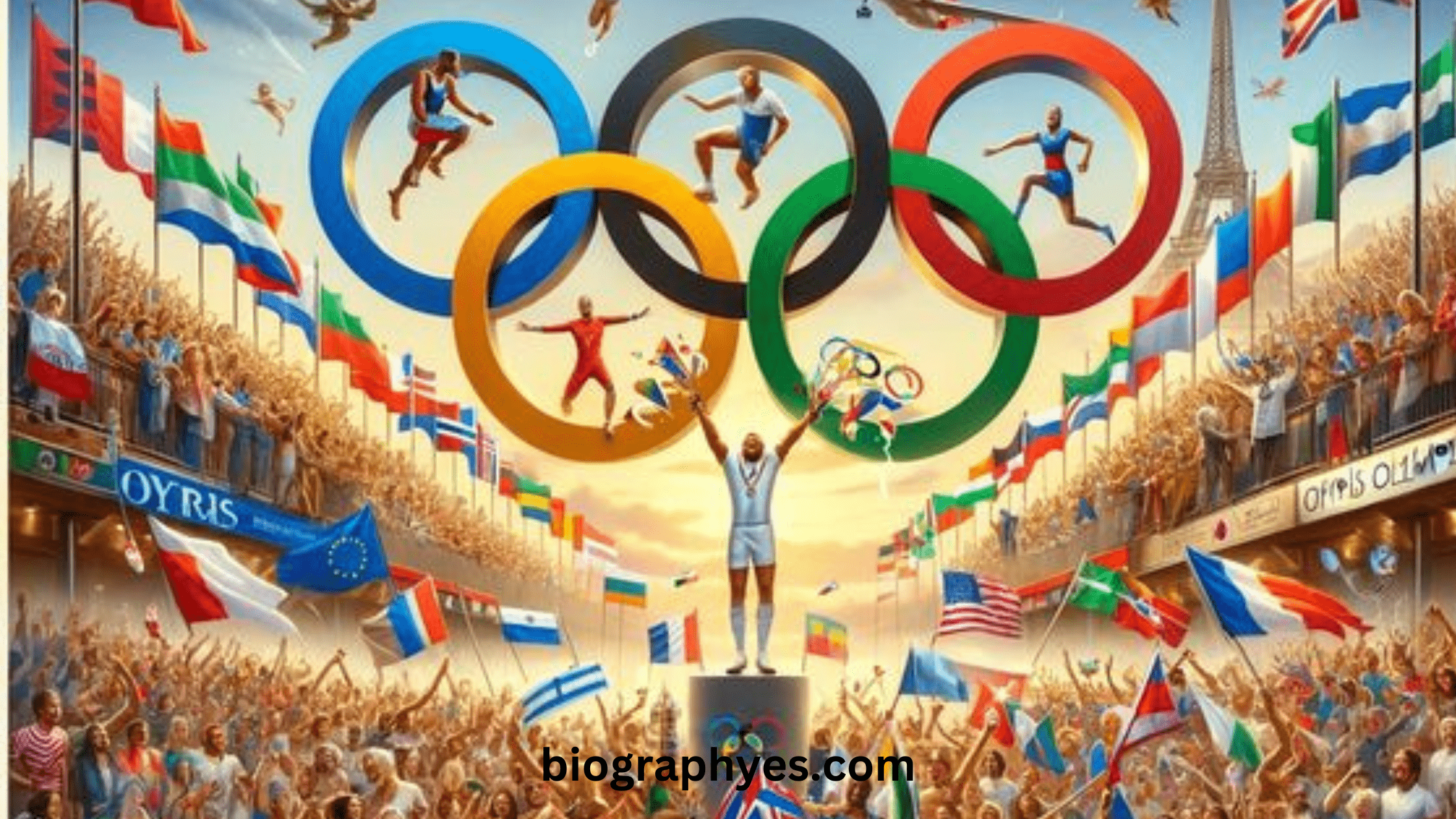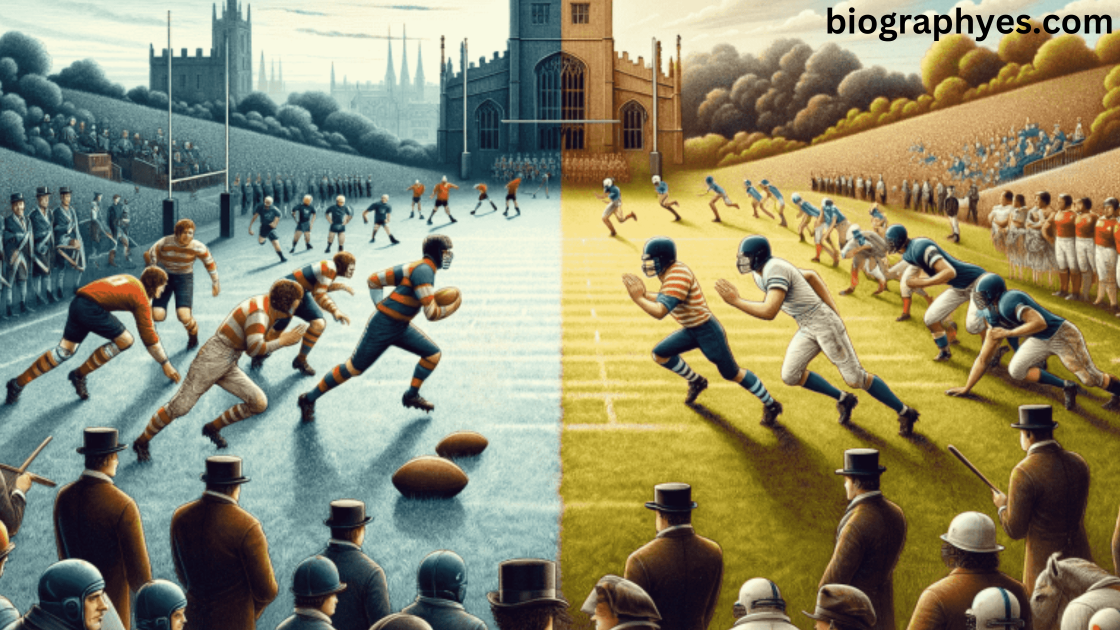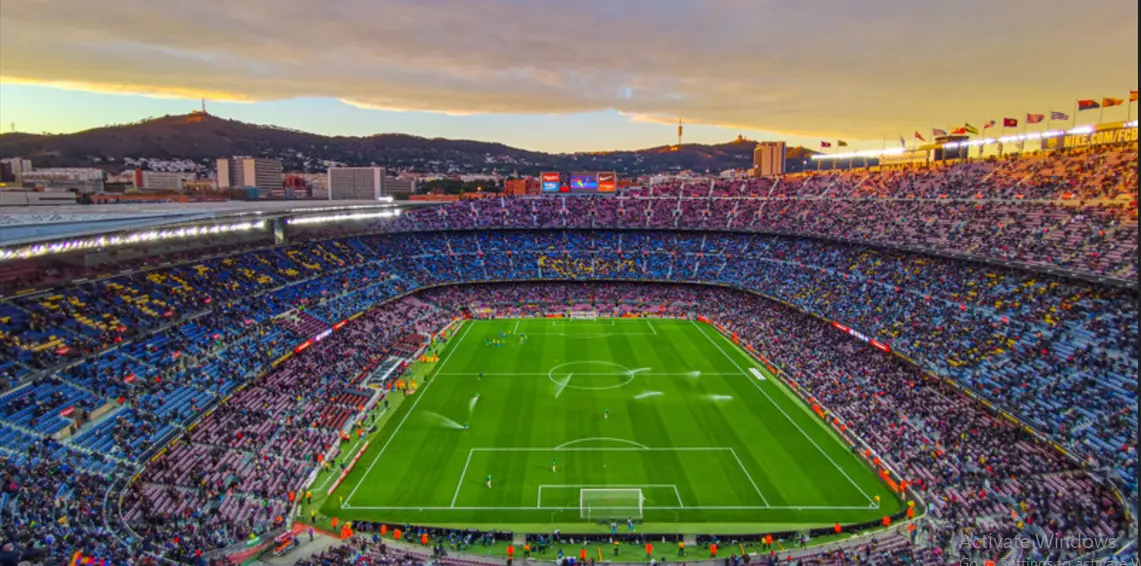The Olympic Games are one of the most prestigious sporting events in the world, with a rich history that dates back thousands of years. The Games have evolved significantly over time, from their ancient origins in Greece to the modern international spectacle they are today. This article delves into the comprehensive history of the Olympic Games, exploring their inception, evolution, and impact on the world.
Ancient Olympic Games (776 BC – 393 AD)
The origins of the Olympic Games can be traced back to ancient Greece, specifically to the sanctuary of Olympia, located in the western Peloponnese. The first recorded Olympic Games took place in 776 BC, although it is believed that they had been held for several centuries before that. The Games were originally part of a religious festival in honor of Zeus, the king of the Greek gods.
The ancient Olympic Games were held every four years, a tradition that continues today. The period between two Olympic Games was known as an Olympiad, and this became a way of measuring time in the ancient world.
The Games were open to all free male Greek citizens, and they included a variety of athletic events such as running, long jump, shot put, javelin, boxing, and equestrian events. The winners of these events were celebrated as heroes and often received substantial rewards from their home cities.
The ancient Olympics were not just a sporting event but also a cultural festival. They included religious ceremonies, sacrifices, and artistic competitions. The Games fostered a sense of unity among the Greek city-states, although they were often interrupted by wars and political conflicts. However, the Olympic Truce, a tradition that called for a cessation of hostilities during the Games, was generally respected.
The ancient Olympic Games continued for nearly 12 centuries until they were abolished in 393 AD by the Roman Emperor Theodosius I, who sought to suppress pagan festivals in favor of Christianity.
The Revival of the Olympic Games (1896)
After the fall of the Roman Empire, the Olympic Games faded into obscurity. It wasn’t until the 19th century that interest in reviving the Games began to emerge. The modern revival of the Olympics is largely credited to Pierre de Coubertin, a French educator and historian who was inspired by the ancient Games and sought to promote international peace and understanding through sports.
In 1894, Coubertin founded the International Olympic Committee (IOC), which became the governing body of the modern Olympic Games. The first modern Olympic Games were held in Athens, Greece, in 1896, as a tribute to the ancient origins of the event. These Games featured 14 nations and 241 athletes, who competed in 43 events. The Athens Games were a modest success and laid the foundation for the growth of the modern Olympics.
The Growth of the Modern Olympic Games
Following the success of the 1896 Athens Games, the Olympic Games began to grow in popularity and scale. The second Olympic Games were held in Paris in 1900, where women were allowed to compete for the first time. The Games continued to expand, with new sports and events being added regularly.
One of the most significant developments in the history of the Olympics was the introduction of the Winter Olympic Games in 1924, held in Chamonix, France. The Winter Games were established to feature sports that could not be included in the Summer Olympics, such as skiing, ice hockey, and figure skating. The Winter Olympics quickly became a major event in their own right.
The Olympic Games were suspended during the two World Wars, with the 1916, 1940, and 1944 Games being canceled. However, the Games resumed in 1948 in London, marking the beginning of a new era of growth and international participation.
The Olympics in the Modern Era
The post-war era saw the Olympic Games become a truly global event. The number of participating countries and athletes increased dramatically, and the Games began to be broadcast on television, reaching a worldwide audience. The Olympics became a platform for showcasing national pride, as well as for political and social statements.
One of the most iconic moments in Olympic history occurred during the 1968 Mexico City Games, where American athletes Tommie Smith and John Carlos raised their fists in a Black Power salute during the medal ceremony, drawing attention to racial inequality in the United States.
The Cold War era saw intense rivalry between the United States and the Soviet Union, with both countries seeking to demonstrate their superiority through Olympic victories. This period also saw several boycotts, most notably the 1980 Moscow Games, which were boycotted by the United States and several other countries in protest against the Soviet invasion of Afghanistan. In retaliation, the Soviet Union and its allies boycotted the 1984 Los Angeles Games.
Despite these political tensions, the Olympic Games continued to grow in scale and importance. The 1992 Barcelona Games marked the end of the Cold War era, and the Olympics became a symbol of global unity and cooperation.
The Commercialization and Globalization of the Olympics
The late 20th and early 21st centuries have seen the Olympic Games become increasingly commercialized and globalized. The IOC began to secure lucrative sponsorship deals and television rights, turning the Olympics into a major economic enterprise. The Games became a platform for multinational corporations to promote their brands to a global audience.
The commercial success of the Olympics has allowed the IOC to invest in the development of sports and infrastructure around the world. However, it has also led to concerns about the impact of commercialization on the spirit of the Games, as well as the costs and controversies associated with hosting the Olympics.
The 2008 Beijing Games were a landmark event, showcasing China’s emergence as a global power. The Beijing Games were the most expensive in history at the time and featured spectacular opening and closing ceremonies. However, the Games also drew criticism for issues such as human rights abuses and environmental concerns.
Challenges and Controversies
The Olympic Games have faced numerous challenges and controversies over the years. Doping has been a persistent issue, with several high-profile scandals tarnishing the reputation of the Games. The IOC has implemented stringent anti-doping measures, but the problem persists.
The cost of hosting the Olympics has also become a significant concern. Many host cities have faced massive debts and underutilized infrastructure after the Games. The 1976 Montreal Games, for example, left the city with a debt that took decades to pay off. More recently, the 2016 Rio de Janeiro Games highlighted the economic and social challenges of hosting the Olympics in a developing country.
Political issues continue to affect the Olympics, with debates over the participation of certain countries, the inclusion of specific sports, and the role of the Games in promoting social and political causes.
The Future of the Olympic Games
Despite the challenges, the Olympic Games remain one of the most popular and prestigious events in the world. The Games continue to evolve, with new sports and disciplines being added, and efforts to make the event more sustainable and inclusive.
The 2020 Tokyo Games, held in 2021 due to the COVID-19 pandemic, demonstrated the resilience of the Olympic movement. The Games were held without spectators, and strict health protocols were implemented to ensure the safety of the athletes and officials.
Looking ahead, the Olympic Games are set to continue as a symbol of international cooperation and athletic excellence. The IOC is exploring new ways to make the Games more sustainable, affordable, and accessible to a global audience. The 2024 Paris Games and the 2028 Los Angeles Games are expected to showcase innovative approaches to hosting the Olympics, with a focus on sustainability and legacy.
The history of the Olympic Games is a testament to the enduring appeal of sports and the power of international cooperation. From their ancient origins in Greece to the modern global event, the Olympics have evolved into a symbol of unity, peace, and human achievement. Despite the challenges and controversies, the Olympic Games continue to inspire athletes and spectators around the world, embodying the Olympic motto: “Citius, Altius, Fortius” (Faster, Higher, Stronger).
How many Olympic Games


As of the most recent Olympic Games, there are 33 sports in the Summer Olympics and 7 sports in the Winter Olympics. However, within these sports, there are numerous disciplines and events, bringing the total number of events to well over 300 in the Summer Games alone.
- Breakdown of Sports in the Summer Olympics:
- Archery
- Athletics (Track and Field)
- Badminton
- Baseball/Softball
- Basketball
- Boxing
- Canoeing/Kayaking (Slalom and Sprint)
- Cycling (BMX, Mountain Bike, Road, and Track)
- Diving
- Equestrian (Dressage, Eventing, Jumping)
- Fencing
- Field Hockey
- Football (Soccer)
- Golf
- Gymnastics (Artistic, Rhythmic, Trampoline)
- Handball
- Judo
- Karate (introduced in Tokyo 2020)
- Modern Pentathlon
- Rowing
- Rugby Sevens
- Sailing
- Shooting
- Skateboarding (introduced in Tokyo 2020)
- Sport Climbing (introduced in Tokyo 2020)
- Surfing (introduced in Tokyo 2020)
- Swimming
- Table Tennis
- Taekwondo
- Tennis
- Triathlon
- Volleyball (Indoor and Beach)
- Water Polo
- Weightlifting
- Wrestling (Freestyle and Greco-Roman)
- Breakdown of Sports in the Winter Olympics:
- Alpine Skiing
- Biathlon
- Bobsleigh (including Skeleton)
- Cross-Country Skiing
- Curling
- Figure Skating
- Freestyle Skiing
- Ice Hockey
- Luge
- Nordic Combined
- Short Track Speed Skating
- Ski Jumping
- Snowboarding
- Speed Skating
- The number of sports and events can vary slightly from one Olympic Games to
- the next as new sports are added or removed based on decisions by the
- International Olympic Committee (IOC).
All participating countries
As of the most recent Olympic Games, over 200 countries participate in the Olympics. The exact number can vary slightly from one Games to the next due to geopolitical changes or specific circumstances.
Summer Olympics:
Typically, around 205 to 206 National Olympic Committees (NOCs) participate. This includes most recognized sovereign states, as well as territories and regions that have their own NOCs, such as Puerto Rico, Hong Kong, and Palestine.
Winter Olympics:
The number of participating countries is usually lower, around 90 to 95 NOCs, due to the nature of the sports and the climate required for training, which limits participation primarily to countries with colder climates.
The number of participating countries has grown significantly since the first modern Olympics in 1896, which featured only 14 nations. The International Olympic Committee (IOC) recognizes 206 NOCs, making the Olympic Games one of the most globally inclusive events.
Countries Name :
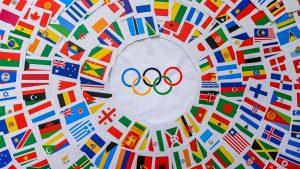

Here is a list of the countries and territories that have participated in the Olympic Games, represented by their National Olympic Committees (NOCs). This includes both sovereign states and territories that have their own NOCs.
A
1. Afghanistan
2. Albania
3. Algeria
4. American Samoa
5. Andorra
6. Angola
7. Antigua and Barbuda
8. Argentina
9. Armenia
10. Aruba
11. Australia
12. Austria
13. Azerbaijan
B
14. Bahamas
15. Bahrain
16. Bangladesh
17. Barbados
18. Belarus
19. Belgium
20. Belize
21. Benin
22. Bermuda
23. Bhutan
24. Bolivia
25. Bosnia and Herzegovina
26. Botswana
27. Brazil
28. British Virgin Islands
29. Brunei Darussalam
30. Bulgaria
31. Burkina Faso
32. Burundi
C
33. Cabo Verde
34. Cambodia
35. Cameroon
36. Canada
37. Central African Republic
38. Chad
39. Chile
40. China
41. Colombia
42. Comoros
43. Congo
44. Cook Islands
45. Costa Rica
46. Côte d’Ivoire
47. Croatia
48. Cuba
49. Cyprus
50. Czech Republic
D
51. Democratic Republic of the Congo
52. Denmark
53. Djibouti
54. Dominica
55. Dominican Republic
E
56. East Timor (Timor-Leste)
57. Ecuador
58. Egypt
59. El Salvador
60. Equatorial Guinea
61. Eritrea
62. Estonia
63. Eswatini (Swaziland)
64. Ethiopia
F
65. Fiji
66. Finland
67. France
G
68. Gabon
69. Gambia
70. Georgia
71. Germany
72. Ghana
73. Greece
74. Grenada
75. Guam
76. Guatemala
77. Guinea
78. Guinea-Bissau
79. Guyana
H
80. Haiti
81. Honduras
82. Hong Kong
83. Hungary
I
84. Iceland
85. India
86. Indonesia
87. Iran
88. Iraq
89. Ireland
90. Israel
91. Italy
J
92. Jamaica
93. Japan
94. Jordan
K
95. Kazakhstan
96. Kenya
97. Kiribati
98. Kosovo
99. Kuwait
100. Kyrgyzstan
L
101. Laos
102. Latvia
103. Lebanon
104. Lesotho
105. Liberia
106. Libya
107. Liechtenstein
108. Lithuania
109. Luxembourg
M
110. Madagascar
111. Malawi
112. Malaysia
113. Maldives
114. Mali
115. Malta
116. Marshall Islands
117. Mauritania
118. Mauritius
119. Mexico
120. Micronesia
121. Moldova
122. Monaco
123. Mongolia
124. Montenegro
125. Morocco
126. Mozambique
127. Myanmar
N
128. Namibia
129. Nauru
130. Nepal
131. Netherlands
132. New Zealand
133. Nicaragua
134. Niger
135. Nigeria
136. North Macedonia
137. Norway
O
138. Oman
P
139. Pakistan
140. Palau
141. Palestine
142. Panama
143. Papua New Guinea
144. Paraguay
145. Peru
146. Philippines
147. Poland
148. Portugal
149. Puerto Rico
Q
150. Qatar
R
151. Romania
152. Russian Olympic Committee (due to sanctions, Russia competes under this name)
153. Rwanda
S
154. Saint Kitts and Nevis
155. Saint Lucia
156. Saint Vincent and the Grenadines
157. Samoa
158. San Marino
159. São Tomé and Príncipe
160. Saudi Arabia
161. Senegal
162. Serbia
163. Seychelles
164. Sierra Leone
165. Singapore
166. Slovakia
167. Slovenia
168. Solomon Islands
169. Somalia
170. South Africa
171. South Korea
172. South Sudan
173. Spain
174. Sri Lanka
175. Sudan
176. Suriname
177. Sweden
178. Switzerland
179. Syria
T
180. Chinese Taipei (Taiwan)
181. Tajikistan
182. Tanzania
183. Thailand
184. Togo
185. Tonga
186. Trinidad and Tobago
187. Tunisia
188. Turkey
189. Turkmenistan
190. Tuvalu
U
191. Uganda
192. Ukraine
193. United Arab Emirates
194. United Kingdom (Great Britain and Northern Ireland)
195. United States
196. Uruguay
197. Uzbekistan
V
198. Vanuatu
199. Vatican City (Observer)
200. Venezuela
201. Vietnam
Y
202. Yemen
Z
203. Zambia
204. Zimbabwe
This list includes countries and territories that have competed in recent Olympic Games. Note that some regions, like Puerto Rico, compete independently, while others like the Vatican City are recognized as observers but do not field athletes. The list can also change slightly over time due to geopolitical events and the recognition of new National Olympic Committees.
Special stories


The Olympic Games are filled with inspiring, historic, and sometimes surprising stories that reflect the spirit of competition, perseverance, and unity. Here are some of the most memorable and special stories from the history of the Olympics:
1. Jesse Owens and the 1936 Berlin Olympics
Background : The 1936 Berlin Olympics, held in Nazi Germany, were intended by Adolf Hitler to showcase Aryan superiority. However, African American athlete Jesse Owens defied this notion by winning four gold medals in track and field (100 meters, 200 meters, long jump, and 4×100 meters relay).
Impact : Owens’ triumph not only embarrassed the Nazi regime but also became a powerful symbol of resistance against racism and discrimination. His achievements resonated globally and remain an iconic moment in Olympic history.
2. The Miracle on Ice – 1980 Winter Olympics
Background : The United States men’s ice hockey team, consisting mostly of college players, faced off against the heavily favored Soviet Union team in the 1980 Winter Olympics in Lake Placid. The Soviet team was considered the best in the world, having won multiple gold medals in previous Olympics.
The Miracle : The U.S. team defeated the Soviets 4 3 in what became known as the “Miracle on Ice.” They went on to win the gold medal by defeating Finland in the final. This victory is often regarded as one of the greatest upsets in sports history and a defining moment in American sports culture.
3. Derek Redmond’s Perseverance – 1992 Barcelona Olympics
Background : British sprinter Derek Redmond was a favorite in the 400 meters at the 1992 Barcelona Olympics. In the semifinal, Redmond tore his hamstring mid race, collapsing to the ground in pain.
The Moment : Determined to finish, Redmond got up and began hobbling toward the finish line. His father ran onto the track, helping him complete the race. The image of Redmond and his father crossing the finish line together became a poignant symbol of courage and the unbreakable human spirit.
4. Ethiopia’s Abebe Bikila Wins Barefoot – 1960 Rome Olympics
Background : Abebe Bikila, an Ethiopian marathon runner, made history in the 1960 Rome Olympics by becoming the first African athlete to win a gold medal. He ran the marathon barefoot after the shoes provided by his sponsor didn’t fit comfortably.
The Achievement : Bikila won the marathon in record time, running past historical landmarks, including the Arch of Constantine. He successfully defended his title in the 1964 Tokyo Olympics, this time wearing shoes, making him the first person to win back to back Olympic marathons.
5. Nadia Comăneci’s Perfect 10 – 1976 Montreal Olympics
Background : At just 14 years old, Romanian gymnast Nadia Comăneci became the first gymnast in Olympic history to score a perfect 10.0 in her routine on the uneven bars at the 1976 Montreal Olympics.
Legacy : Comăneci achieved seven perfect 10s during the Games and won three gold medals, becoming a global sensation. Her achievement not only revolutionized gymnastics but also inspired a generation of athletes worldwide.
6. Tommie Smith and John Carlos’ Black Power Salute – 1968 Mexico City Olympics
Background : American athletes Tommie Smith and John Carlos made a powerful statement during the 1968 Mexico City Olympics by raising their fists in a Black Power salute during the medal ceremony for the 200 meters, in which Smith won gold and Carlos bronze.
The Protest : The salute was a protest against racial inequality and discrimination in the United States. Their actions were met with controversy, and they were expelled from the Games, but their courageous stand became an enduring symbol of the civil rights movement.
7. Luz Long and Jesse Owens’ Friendship – 1936 Berlin Olympics
Background : At the 1936 Berlin Olympics, Jesse Owens competed in the long jump against Germany’s Luz Long. During the qualifying rounds, Owens was struggling to make a legal jump.
The Gesture : Despite representing Nazi Germany, Long approached Owens, offering advice on how to adjust his run up. Owens took the advice, qualified, and eventually won gold. Long won silver, and the two athletes shared a moment of camaraderie, walking arm in arm after the event. Their friendship, despite the political tensions, stands as a testament to sportsmanship and humanity.
8. Eric Moussambani’s Inspirational Swim – 2000 Sydney Olympics
Background : Eric Moussambani, a swimmer from Equatorial Guinea, had never seen an Olympic sized pool before arriving at the 2000 Sydney Olympics. He trained in a 20 meter pool and had only learned to swim a few months before the Games.
The Swim : In the 100 meter freestyle heat, Moussambani swam alone after his competitors were disqualified for false starts. Despite his lack of experience, he completed the race, albeit at a much slower pace, earning the nickname “Eric the Eel.” His determination captured the hearts of millions, symbolizing the true spirit of the Olympics.
9. The Unified Korean Team – 2018 PyeongChang Winter Olympics
Background : At the 2018 PyeongChang Winter Olympics, athletes from North and South Korea marched together under a unified flag during the opening ceremony. The two countries also fielded a joint women’s ice hockey team.
Significance : This moment of unity was significant, considering the long standing tensions on the Korean Peninsula. It highlighted the Olympics’ role in fostering peace and dialogue, even in the face of political conflict.
10. Florence Griffith Joyner’s Records – 1988 Seoul Olympics
Background : American sprinter Florence Griffith Joyner, known as “Flo Jo,” set world records in the 100 meters and 200 meters at the 1988 Seoul Olympics. Her records still stand today.
The Legacy : Flo Jo’s flamboyant style, with her one legged racing suits and long, colorful nails, made her a global icon. Her dominance on the track and her charismatic personality left an indelible mark on the sport.
These stories reflect the diverse, rich history of the Olympic Games, highlighting not just athletic achievement, but also the powerful impact of sports on culture, politics, and human emotion.
Rules and Structure of Olympic Games
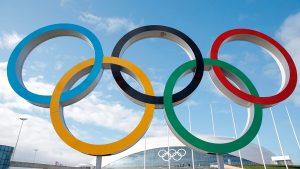

The Olympic Games are governed by a set of rules and structures designed to ensure fair competition, integrity, and global representation. Below is an overview of the key rules and structures:
1. Governing Body:
International Olympic Committee (IOC): The IOC is the supreme authority of the Olympic Movement, responsible for the organization and governance of the Olympic Games. It establishes the rules, selects the host cities, and oversees the planning and execution of the Games.
2. Olympic Charter:
Fundamental Principles: The Olympic Charter is a set of rules and guidelines established by the IOC, outlining the principles of Olympism, the organization of the Olympic Games, and the roles of the IOC, National Olympic Committees (NOCs), and International Sports Federations (IFs).
Eligibility: Athletes must comply with the eligibility rules set by their respective International Federations, their NOC, and the IOC.
3. Olympic Events:
Summer and Winter Games: The Olympic Games are divided into Summer and Winter Games, held every four years, with each set of Games alternating every two years.
Disciplines: Each sport in the Olympics is governed by an International Federation that defines the specific rules and formats of the competition.
4. Participation:
National Olympic Committees (NOCs): Each participating country is represented by its NOC, which is responsible for selecting athletes and ensuring they meet the Olympic standards.
Team Composition: NOCs may enter athletes in individual and team events. The number of participants varies by sport and event.
Qualification: Athletes qualify for the Olympics through various means, including international competitions, world rankings, and continental tournaments.
5. Competition Structure:
Opening Ceremony: The Games begin with an Opening Ceremony, including the parade of nations, the Olympic oath, and the lighting of the Olympic flame.
Events and Scoring: Events are conducted according to the rules of each sport, with medals awarded to the top three competitors or teams (gold, silver, and bronze).
Anti Doping: Athletes are subject to stringent anti doping regulations, with testing conducted by the World Anti Doping Agency (WADA) to ensure clean competition.
6. Athlete Code of Conduct:
Fair Play: Athletes are expected to uphold the principles of fair play, respect, and sportsmanship.
Protests and Appeals: Any protests or appeals during the Games must be made according to the procedures established by the respective sport’s governing body.
7. Host City Responsibilities:
Infrastructure and Venues: The host city is responsible for providing the necessary infrastructure, including sports venues, transportation, accommodation, and security.
Cultural and Environmental Initiatives: The host city often incorporates cultural and environmental initiatives to promote the values of Olympism and leave a positive legacy.
8. Closing Ceremony:
The Games conclude with a Closing Ceremony, where medals are awarded for the final events, the Olympic flag is handed over to the next host city, and the Olympic flame is extinguished.
9. Legacy:
Sustainability and Legacy Planning: Host cities are encouraged to plan for the long term impact of the Games, focusing on sustainability and the legacy of facilities, infrastructure, and community engagement.
These rules and structures ensure that the Olympic Games remain a global celebration of sport, promoting peace, unity, and the Olympic values of excellence, friendship, and respect.
The future of the Olympic Games


The future of the Olympic Games is shaped by various factors, including technological advancements, evolving social values, environmental considerations, and the need to adapt to global challenges. Here are some key trends and potential developments:
1. Sustainability : Future Olympic Games are likely to prioritize sustainability more than ever. This includes using renewable energy, minimizing carbon footprints, and implementing eco-friendly infrastructure. Host cities might be required to demonstrate a strong commitment to environmental responsibility.
2. Digital Transformation : Technology will play a central role, with innovations like virtual reality (VR), augmented reality (AR), and advanced data analytics enhancing the spectator experience and athlete training. There might be more integration of e-sports, reflecting the growing popularity of digital competitions.
3. Inclusivity and Diversity : The Olympics are expected to continue expanding their inclusivity, possibly introducing more events for athletes with disabilities, and adding new sports that reflect diverse cultures. Efforts to promote gender equality will also remain a focus.
4. Health and Safety : In the post-pandemic world, health and safety protocols will be crucial. This could include more rigorous health monitoring for athletes, and potentially even hybrid events that mix virtual and in-person participation to reduce risks.
5. Geopolitical Influence : The selection of host cities might increasingly consider geopolitical stability, with the International Olympic Committee (IOC) possibly adopting more stringent criteria to avoid controversies. The Games could also serve as a platform for diplomatic efforts.
6. Economic Impact : The economic model of the Olympics might evolve to ensure that hosting the Games is financially viable and beneficial for the host cities. This could involve smaller-scale events, shared hosting between multiple cities, or more permanent Olympic venues.
7. Cultural Shift : As global attitudes shift, the Olympics might see changes in how they are perceived and celebrated. The Games could become more of a platform for addressing global issues, such as climate change, social justice, and peacebuilding.
These trends suggest that while the Olympics will continue to be a major global event, they will likely evolve to meet the challenges and opportunities of the 21st century.
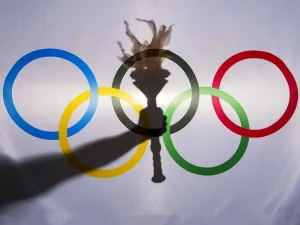

As the world continues to evolve, so too will the Olympic Games. The future of the Olympics will be shaped by the need to balance tradition with innovation, ensuring the Games remain relevant and impactful in an ever-changing global landscape. By embracing sustainability, inclusivity, and technological advancements, the Olympics will not only continue to celebrate athletic excellence but also serve as a platform for addressing some of the most pressing issues of our time. The Games will remain a beacon of unity, bringing together people from all corners of the globe to celebrate the spirit of competition, cooperation, and global citizenship.
Read More : American football history
